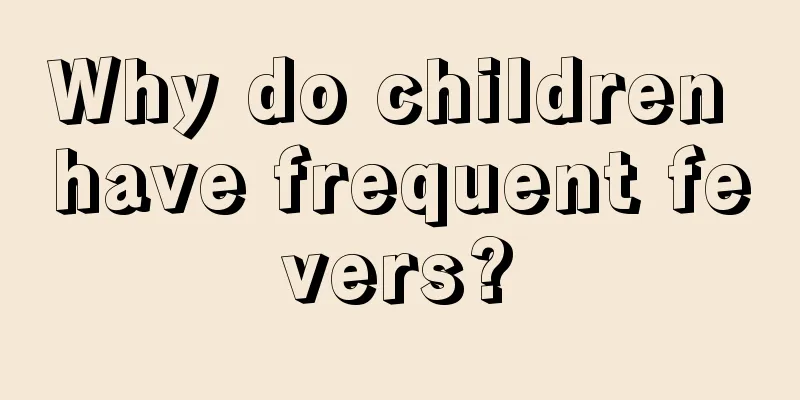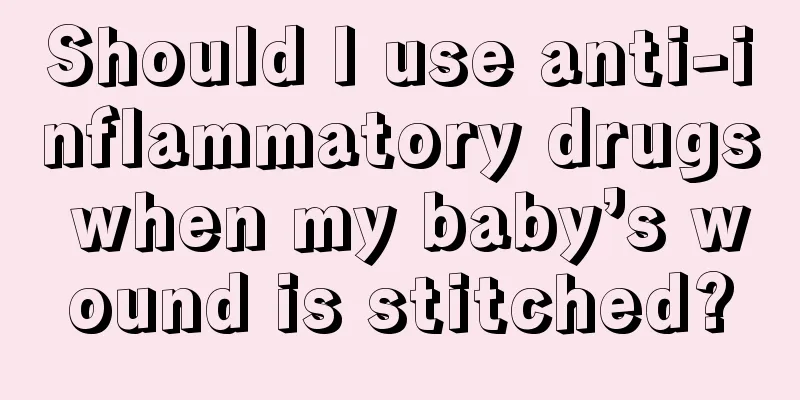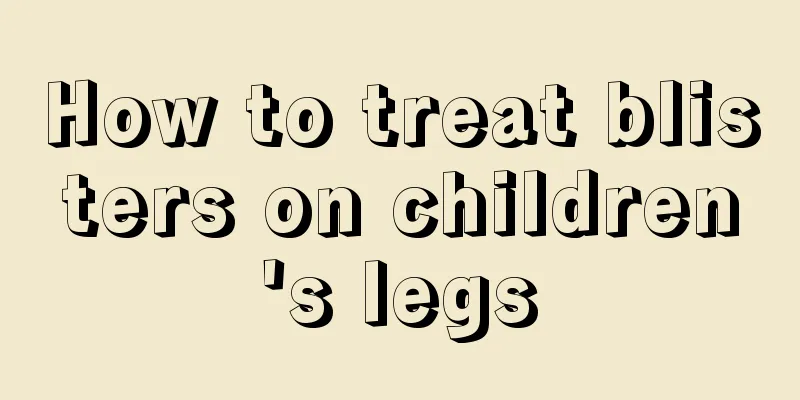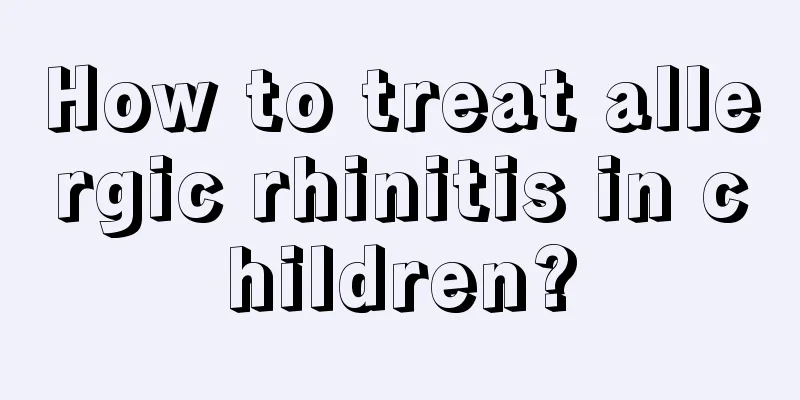Why do children have frequent fevers?

|
If a person's body temperature is higher than 37 degrees, it means that the body has a fever. For children, their resistance is relatively low, and they are prone to severe symptoms of frequent fever. This is mainly because children become infected and viruses invade cells, leading to general weakness, muscle aches, etc. All pathogens are caused by fever, so they must be resolved and treated in time to avoid other symptoms and diseases caused by fever. 1. When the body temperature is below 38.5℃, physical cooling is the preferred intervention. Fever is the most common symptom of infectious diseases in children. The treatment of fever can be roughly divided into "physical treatment" and "drug treatment". Generally speaking, when a child's body temperature is below 38°C, there is no need to use drug treatment, but choose the correct physical cooling method. For example, applying a fever-reducing patch, drinking plenty of water, and taking a warm bath can all help lower body temperature. 2. Infants and young children with a body temperature above 38.5°C need drug treatment. If you find that your child's body temperature has exceeded 38.5℃, parents should closely observe the child's condition so as to respond in time. For infants and young children, when their body temperature exceeds 38.5℃, they need to be given medication. 3. If the body temperature is above 39°C, medication should be taken under the guidance of a doctor. When a child's body temperature exceeds 39°C and is considered a high fever, Western medicine treatment is usually chosen. Currently, ibuprofen and paracetamol are commonly used antipyretics in clinical practice. These two types of drugs are relatively safe. But one thing that must be made clear is that parents should use the medication under the guidance of a doctor, especially pay attention to the dosage, and send the baby to the hospital for treatment in time. Only a balanced diet can enhance children's resistance and help them recover as quickly as possible. So, what should children eat when they have recurring fever? Parents can let their children take in a balanced amount of foods rich in nutrients such as protein, sugar, fat and minerals in their daily diet, and eat more easily digestible foods, such as rice soup. In addition, let your children develop good eating habits. Picky eating and partial eating can easily lead to nutritional imbalance, weakened body resistance to disease, and make them susceptible to virus invasion. (1) Rice soup. Rice soup can provide children with carbohydrates. It has sufficient water content, making it easier for sick children to absorb it. Rice soup is obtained by boiling rice and removing the residue. (2) Mung bean soup. Mung beans are benign and have the effects of clearing away heat, detoxifying and relieving summer heat. (3) Fresh fruit juice. In summer, you can drink watermelon juice, which has the effects of clearing away heat, quenching thirst, and diuresis; in autumn and winter, you can drink fresh pear juice, which has the effects of moistening the lungs, clearing the heart, relieving cough, and removing phlegm; fresh orange juice has the effects of removing dampness, resolving phlegm, clearing the lungs, and unblocking the meridians. Common semi-liquid foods include porridge, eggs, and soft noodles. It is worth noting that liquid food is generally consumed during the acute phase of illness, and semi-liquid food is consumed during the recovery phase or fever-reducing phase. If a child with a fever has a poor appetite, do not force him to eat, so as to avoid stomach discomfort and vomiting after eating, but be sure to pay attention to replenishing water. In addition, do not suddenly add food that the child has not eaten before during the fever period to avoid diarrhea. |
<<: Causes of swollen tonsils in children
>>: Does color Doppler ultrasound have any effect on children?
Recommend
What are the treatments for allergic cough in children?
Cough in children is a relatively common disease....
What are the causes of stomach pain in two-year-old babies?
Some babies always complain of stomachaches, but ...
Full-month baby's breathing is like snoring
When the baby's breathing sounds like snoring...
The child has repeated fever and blisters at the mouth
Children have poor body resistance and are prone ...
How to solve the problem of baby coughing for half a month
Baby coughing is very common in life, and there a...
What to do if your baby has a high temperature convulsion
If the baby has a high temperature convulsion, it...
What should I do if my child has a fever after eating eel?
If your baby is usually lively but suddenly becom...
How to deal with children's rhinitis
Rhinitis is difficult to treat, and most people c...
What should I pay attention to when my 1-year-old baby has bronchial pneumonia?
Bronchopneumonia in one-year-old babies is what w...
Can a nine-month-old baby drink soy milk?
If there is a baby at home, then the baby's e...
Why are children not concentrating on eating?
Many children, especially those aged 3 to 7, ofte...
Children's cough first produces phlegm and then turns into dry cough
Coughing is a very common lung disease in childre...
Comprehensive care for premature infants at 36 weeks
Premature babies at 36 weeks are a common phenome...
What to do if your child has a fever
Colds and fevers are the most worrying issues for...
What should you pay attention to when your child changes his teeth?
Tooth replacement is the process in which deciduo...









